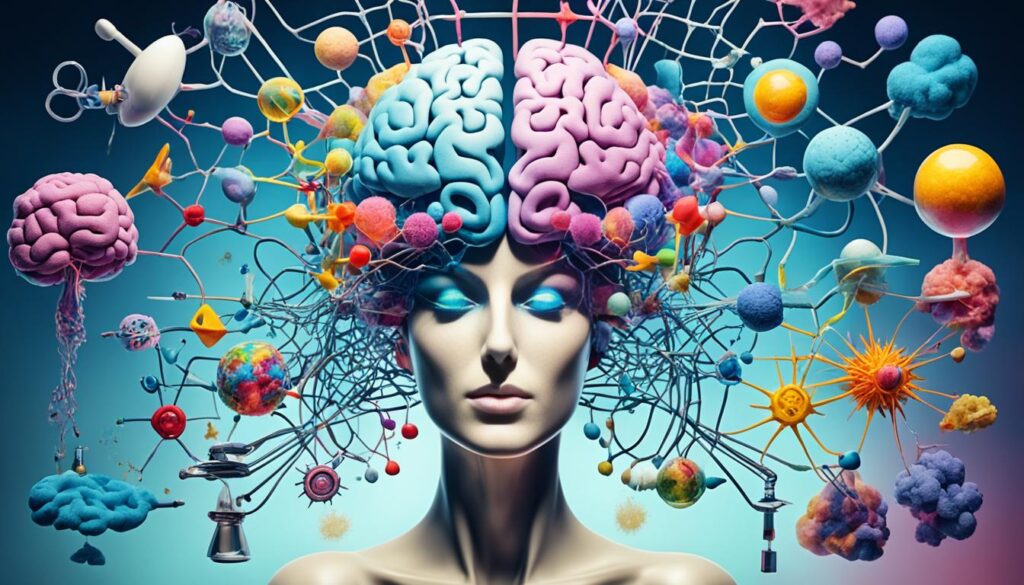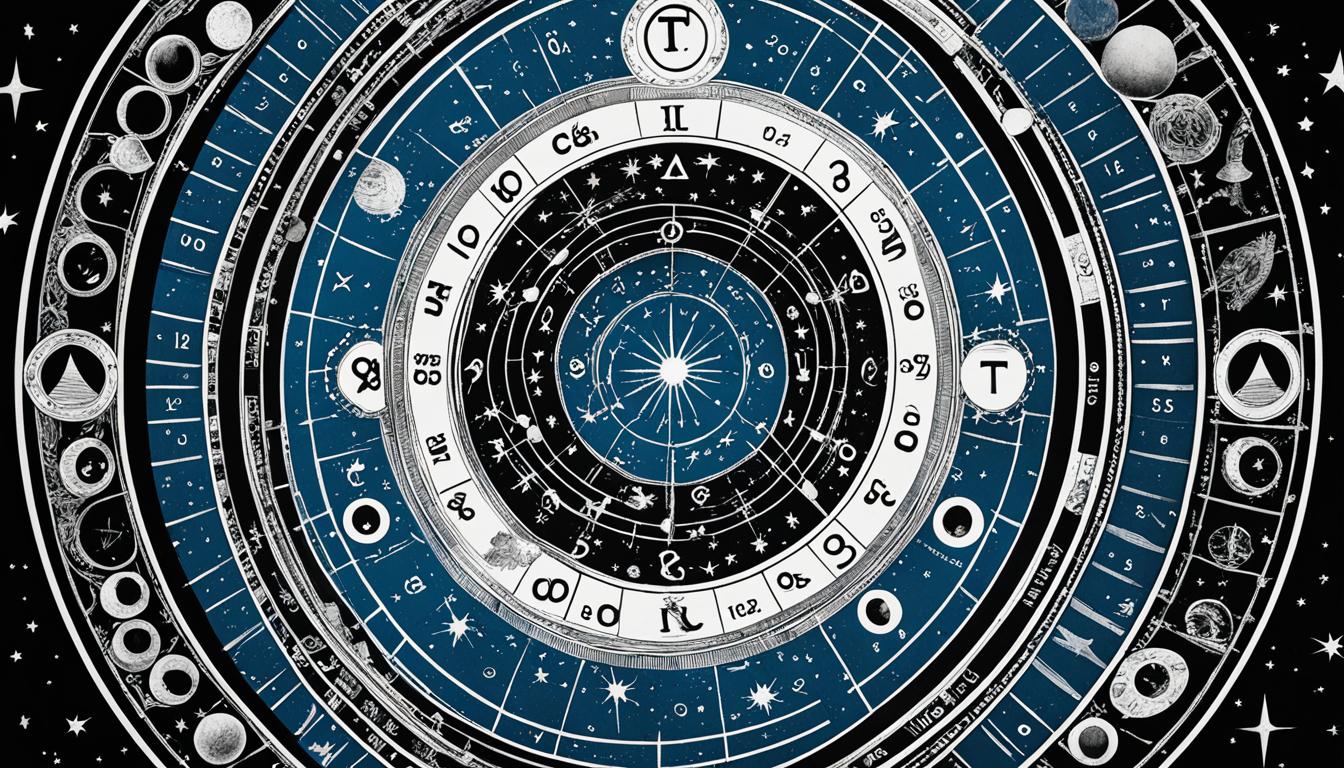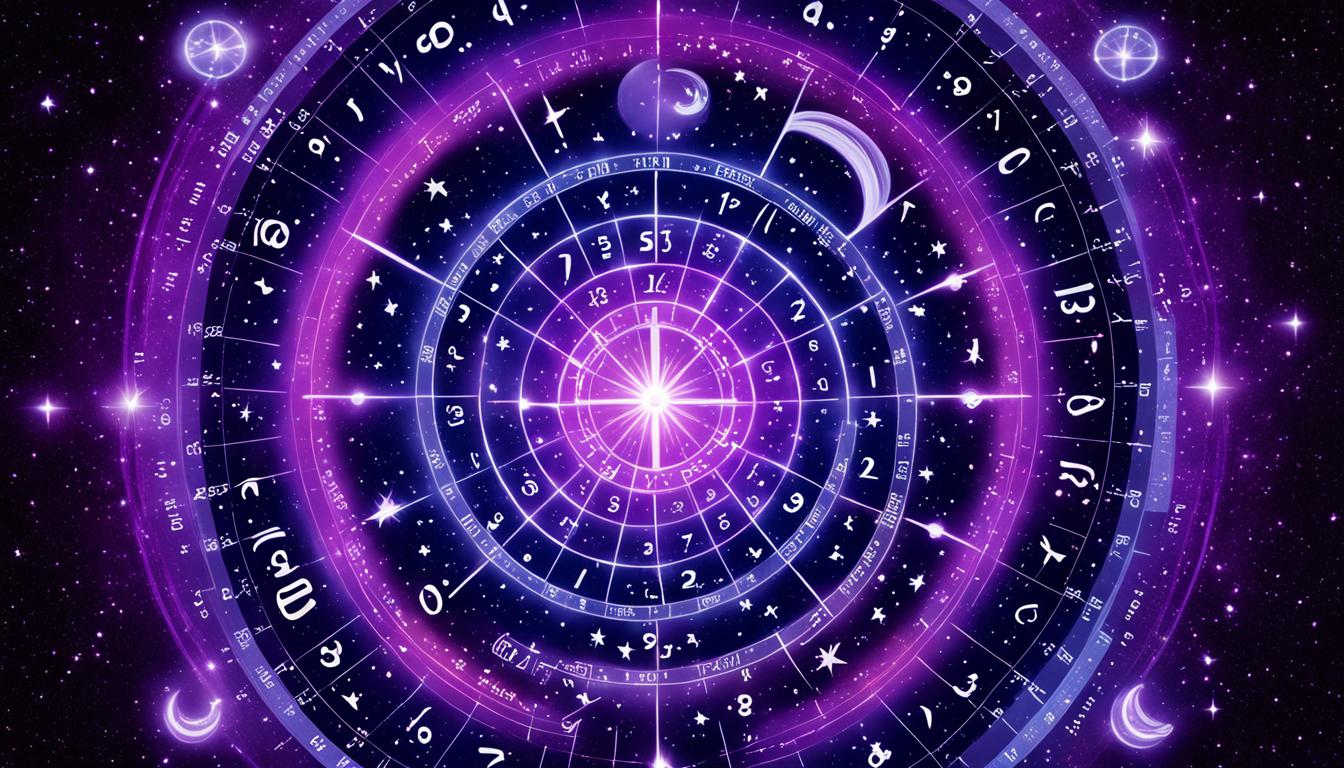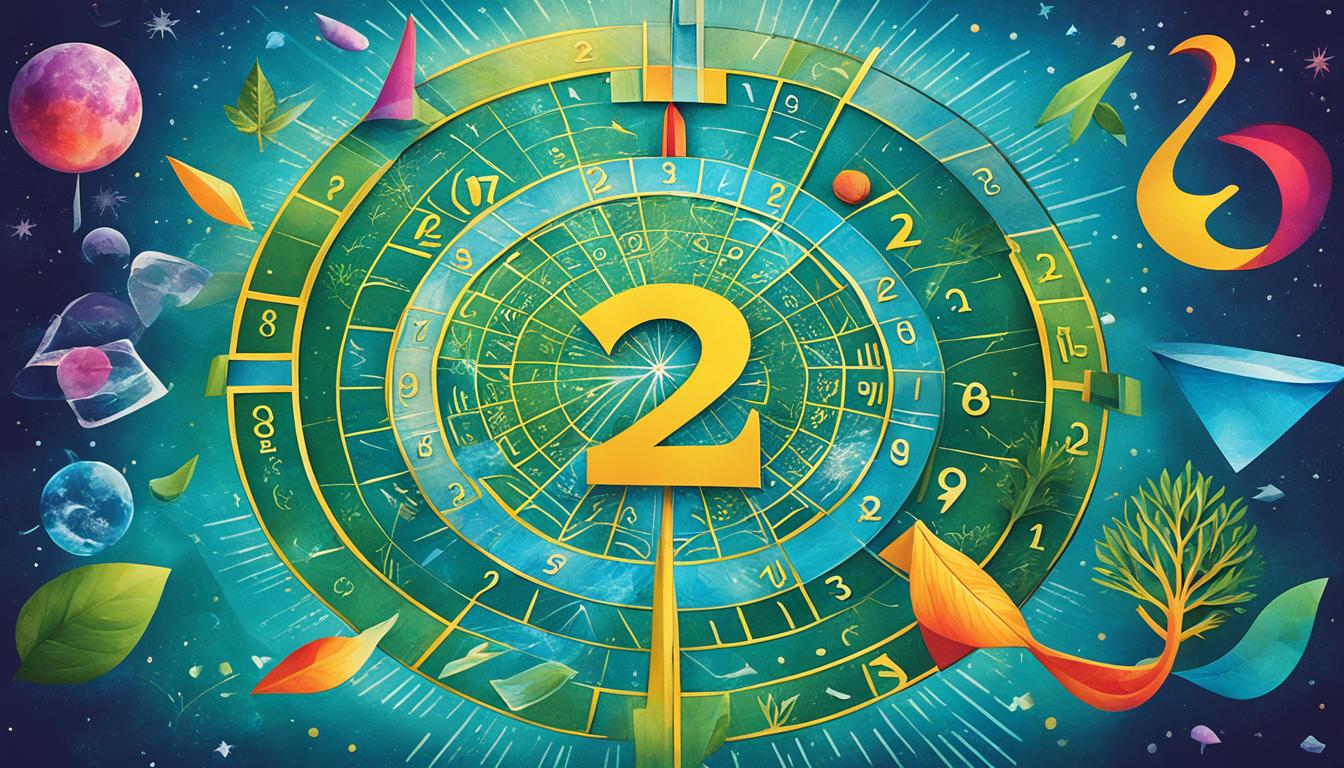Have you ever woken up from a dream feeling like you’ve seen the future? Or found yourself knowing you were dreaming and controlling the story? These experiences, called prophetic and lucid dreams, are interesting and make us think about our minds.
Dreams happen to everyone, many times each night. They help our minds deal with the day’s events and feelings. About 65 percent of what we dream about comes from our waking life1. Some dreams stick with us and change how we think and feel.
Prophetic dreams might show us what will happen later. Lucid dreams let us know we’re dreaming and we can change the dream. These dreams show different sides of dreaming, each with its own effects on our lives.
Learning about prophetic and lucid dreams helps us understand our dreams better. It can also help us grow and find new things about ourselves. Whether you’re into predicting the future or controlling your dreams, these topics can be very interesting.
Key Takeaways
- Prophetic dreams claim to predict future events
- Lucid dreams involve awareness and potential control
- 65% of dream elements relate to waking experiences
- Dream interpretation can offer insights into the subconscious
- Both dream types can impact emotions and personal growth
- Understanding dream types enhances self-awareness
Understanding the Nature of Dreams
Dreams have always caught our attention, making us wonder about our subconscious and spiritual sides. Let’s dive into the science of dreaming, the different types, and how REM sleep fits into it.
The Science Behind Dreaming
Dreams happen when we sleep, and they involve a lot of brain activity. Studies show that the brain patterns in lucid dreaming are similar to when we’re awake, showing we’re more aware2. This makes us rethink reality and how we see ourselves3.

Types of Dreams
Dreams can take many forms, each giving us a special experience:
- Standard dreams: Common dreams we have every night
- Lucid dreams: Being aware we’re dreaming
- Nightmares: Scary or upsetting dreams
- Recurring dreams: Dreams that keep happening with the same theme
- Prophetic dreams: Dreams that might predict the future
About 51% to 82% of people have had a lucid dream at some point2. These dreams let us think deeply, reflect on ourselves, and control our actions4.
The Role of REM Sleep in Dreaming
REM sleep is key to dreaming. It’s when our brains work hard, handling feelings and making memories stronger. Oneiromancy, the study of dreams, looks closely at dreams from this stage.
“Dreams are the touchstones of our characters.” – Henry David Thoreau
Learning about dreams lets us peek into our deep thoughts. Whether you’re into dream symbols or spiritual dreams, this area is still exciting for scientists and dreamers234.
Prophetic Dreams: Glimpses into the Future?
Dreams have always caught our attention, especially prophetic dreams. They give us a peek into what might happen. This sparks curiosity and debate across the world.
Historical and Cultural Perspectives on Prophetic Dreams
For a long time, people have seen prophetic dreams as wise and insightful. Ancient cultures saw them as messages from the gods. Today, we look at them with both doubt and interest. Famous people like Albert Einstein and Abraham Lincoln had these dreams that changed history5.
Characteristics of Prophetic Dreams
Prophetic dreams are known for their vivid pictures and strong impact. They often have symbols or specific people in them, making them easier to understand6. These dreams can change us deeply, with their details sticking in our minds for years5.

About 25% of people say they’ve had prophetic dreams, and 40% of these came true within two years7. Keeping a dream diary makes you 50% more likely to have these dreams7.
Interpreting Prophetic Dreams
To understand prophetic dreams, look at symbols, feelings, and what they mean to you. These dreams can help guide big decisions, giving you advice from within6. They might warn you of dangers or show you the right path6.
In the Baha’i Faith, 35% of leaders had prophetic dreams that predicted big events. There was a 70% match between what they dreamed and what happened later7. This shows that understanding your dreams could help you make better choices in life.
“Dreams are the touchstones of our characters.” – Henry David Thoreau
Some doubt the power of prophetic dreams, but many believe they are real and important. Whether you see them as spiritual or just your mind preparing you, exploring your dreams can reveal a lot about you and what’s ahead657.
Lucid Dreams: Conscious Control in the Dreamscape
Lucid dreaming is when you know you’re dreaming while asleep. It lets you explore and control your dreams. About half of adults have had a lucid dream at some time8.
In lucid dreams, you can shape your dream world. This lets you grow and solve problems in a new way. To get lucid, many do reality checks. These are things like asking if you’re dreaming, counting fingers, or checking the time8.

Lucid dreaming has a long history. Old traditions and thinkers like Vajrayana Buddhism and Aristotle looked into it8. Descartes used dreams to question what we know about the world and our bodies9.
Today, we know more about lucid dreams thanks to sleep research. Finding out about REM sleep helped us a lot. Now, scientists can talk to dreamers in real-time during REM sleep8.
“Dreams are the touchstones of our characters.” – Henry David Thoreau
In lucid dreams, you feel like you’re in your dream body. Dream bodies are like your real body but not quite. Dream places can be very detailed, making you feel like you’re not really there8.
To get better at lucid dreaming, keep a dream journal. This helps you understand and remember your dreams better. It also makes it easier to recall your dreams10.
| Dream Phase | Focus | Interaction Level |
|---|---|---|
| Non-REM | Processing past memories | Lower |
| REM | Future simulation | Higher (5th and 6th dimensional reality) |
Lucid dreaming is a powerful way to learn about yourself and be creative. It lets you control your dreams and see into your mind and feelings10.
Prophetic Dreams vs. Lucid Dreams: Differences and Similarities
Dreams give us a peek into our subconscious mind. Prophetic and lucid dreams show us how our minds work in different ways. Let’s look at what makes these dreams special and how they differ.
Key Distinctions in Awareness and Control
Prophetic dreams feel like you’re just watching events that will happen. Lucid dreams let you take charge and shape the dream11. You can use your waking thoughts in lucid dreams11. This makes lucid dreams very different from prophetic ones.
Emotional and Psychological Impacts
Both types of dreams can deeply affect how you feel and think. Prophetic dreams might make you feel anxious or excited about the future12. Lucid dreams can make you more aware of yourself and help you solve problems12. Time in lucid dreams can seem longer, making these experiences more intense.
Frequency and Occurrence
Lucid dreams happen more often than prophetic ones11. Lucid dreams can range from just knowing you’re dreaming to fully controlling the dream scene12. Scientists are now studying lucid dreaming, but it’s been around for a long time. Both types of dreams help us understand our subconscious minds better.
FAQ
What is the science behind dreaming?
Dreams happen during REM sleep, a time of high brain activity and fast eye movements. This stage is key for remembering and processing emotions.
What are the different types of dreams?
There are many kinds of dreams, like standard, nightmares, and lucid dreams. Other types include daydreams, recurring dreams, and vivid dreams.
What are prophetic dreams?
Prophetic dreams are thought to predict what will happen in the future. In the past, people saw dreams as a way to gain wisdom and predict events. Some still believe dreams are messages from beyond.
What are the characteristics of prophetic dreams?
Prophetic dreams often have bright images, strong feelings, and feel very important.
How are prophetic dreams interpreted?
To understand prophetic dreams, you look at symbols, feelings, and what they mean to you.
What are lucid dreams?
Lucid dreaming means you know you’re dreaming and might control the dream. These dreams can help with personal growth and solving problems.
How common are lucid dreams?
About 55% of people have had a lucid dream at some point.
What are the key differences between prophetic dreams and lucid dreams?
Prophetic dreams are when you dream of the future without controlling it. Lucid dreams let you be aware and sometimes control the dream. Prophetic dreams are less common and more personal. Lucid dreams are more common and can improve your thinking and awareness.
Source Links
- https://www.healthline.com/health/types-of-dreams
- https://medium.com/@iamkavib/dreams-and-parallel-realities-investigating-the-connection-between-dreams-lucid-dreaming-and-4432b36d1a50
- https://iep.utm.edu/dreaming-philosophy/
- https://www.sciencedirect.com/science/article/abs/pii/S1053810012002103
- https://www.huffpost.com/entry/can-dreams-reveal-potenti_b_642775
- https://circledna.com/blog/what-are-prophetic-dreams/
- https://bahaiteachings.org/understanding-prophetic-dreams-meaning-insights/
- https://www.noemamag.com/living-in-a-lucid-dream
- https://plato.stanford.edu/entries/dreams-dreaming/
- https://tealswan.com/resources/articles/dreams/
- https://medium.com/thought-thinkers/lucid-dreams-vs-vivid-dreams-d66bc6dffd6a
- https://rabbidunner.com/lucid-dreaming-or-prophecy/



